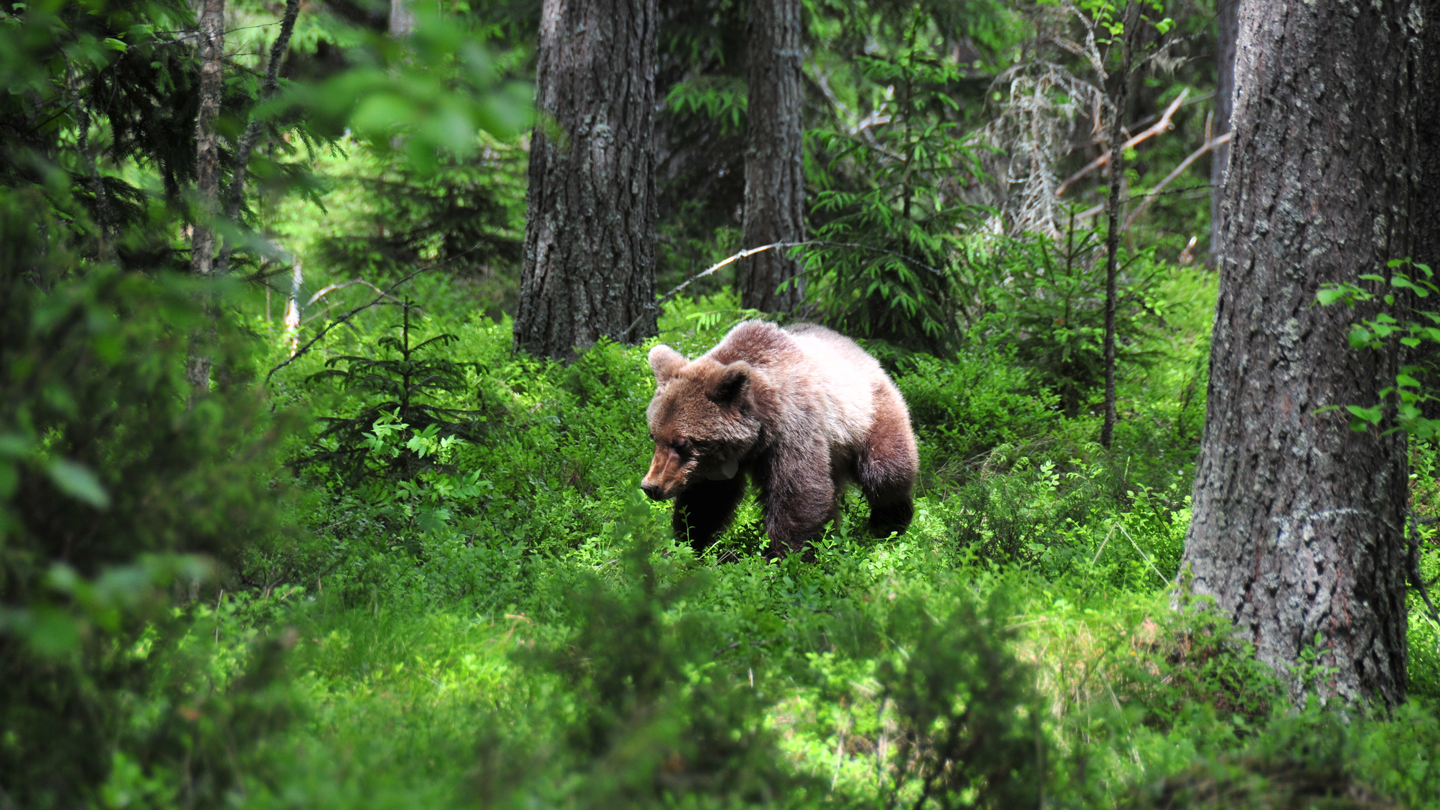People stuck sitting in tight airplane seats for an entire long-haul flight are at risk of dangerous blood clots. But somehow immobile, hibernating bears are not. Now scientists know why.
Bears settled in for winterlong slumbers have low levels of a key protein that helps blood clots form, researchers report in the April 14 Science. Platelets lacking this protein don’t easily stick together, protecting the animals from developing potentially dangerous blood clots. And low levels of the protein are not just found bears, the team writes. Mice, pigs and humans with a largely sedentary lifestyle because of long-term mobility problems have the same protection.
The study is a “huge step forward,” says Tinen Iles, a computational biologist at the University of Minnesota in Minneapolis who was not involved with the research. It brought together researchers from a wide variety of backgrounds — from wildlife biologists to health care experts — to show how animals have adapted to stop immobility-related blood clots. Now, researchers have a roadmap to mimic nature’s solutions with drugs.
Heat shock protein 47, or HSP47, is normally found in the cells that make up connective tissues like bone and cartilage. It’s also found in platelets, where HSP47 attaches to collagen, a protein that helps platelets stick together. This is helpful when the body responds to a cut or other injury; it’s dangerous when a clump of platelets blocks blood flow to the lungs. Potential drugs based on this study’s finding would aim to stop HSP47 from interacting with proteins or immune cells that spark clots, says Tobias Petzold, a cardiologist at University Hospital at Ludwig-Maximilians-Universität München.
Staying still for long periods of time — like during air travel — can put people at risk of developing deep vein thrombosis, rare but dangerous blood clots that usually take shape in the legs (SN: 6/13/06). During such periods of inactivity, inflammation and slow blood flow can make clots more likely to form.
Hibernating bears spend months in a dormant state, lowering their heart rate below what’s typical in active months. But studies have suggested that the animals don’t die of conditions linked to blood clots in veins during hibernation (SN: 2/10/12). What’s more, people who experience long-term immobility, such as those with spinal cord injuries, do not develop more clots than people with typical mobility, Petzold says. But it was unclear why immobile bears and some people are protected from potentially deadly clots.
Petzold and colleagues analyzed blood samples from 13 wild brown bears (Ursus arctos) in winter and summer. Platelets from blood samples taken during hibernation were less likely to clump together than summer samples, and ones that did clot did so more slowly. That seasonal difference was pinned to HSP47 in platelets: In hibernating bears, levels of the protein were about one-fiftieth the amount found in active animals.
To confirm that HSP47 could be behind the bears’ lack of blood clots, the team did lab tests with mice. Mice lacking the protein had fewer clots and lower levels of inflammation than animals that did have HSP47. What’s more, pigs that had recently given birth — rendering them largely immobile for up to 28 days while feeding their piglets — also had lower HSP47 levels compared with active pigs.
These findings extend to people, too. People with long-term immobility because of spinal cord injury had low levels of HSP47 and no other signs of inflammation-related clotting. The same was also true among 12 otherwise healthy people who spent a month participating in a voluntary bed rest study. After 27 days of immobility, their HSP47 levels went down.
Overall, most animals use similar proteins and cells to make clots and prevent blood loss, says Marjory Brooks, a veterinarian and comparative hematologist at Cornell University who wasn’t involved in the study. But there may be some variation among species in the sequence of events that come before the clot.
Understanding how human bodies specifically regulate HSP47 is important so that potential drugs find the right balance between preventing clots and too much bleeding.
The next big question to address, Petzold says, is how motionlessness prompts the body to make less HSP47.














